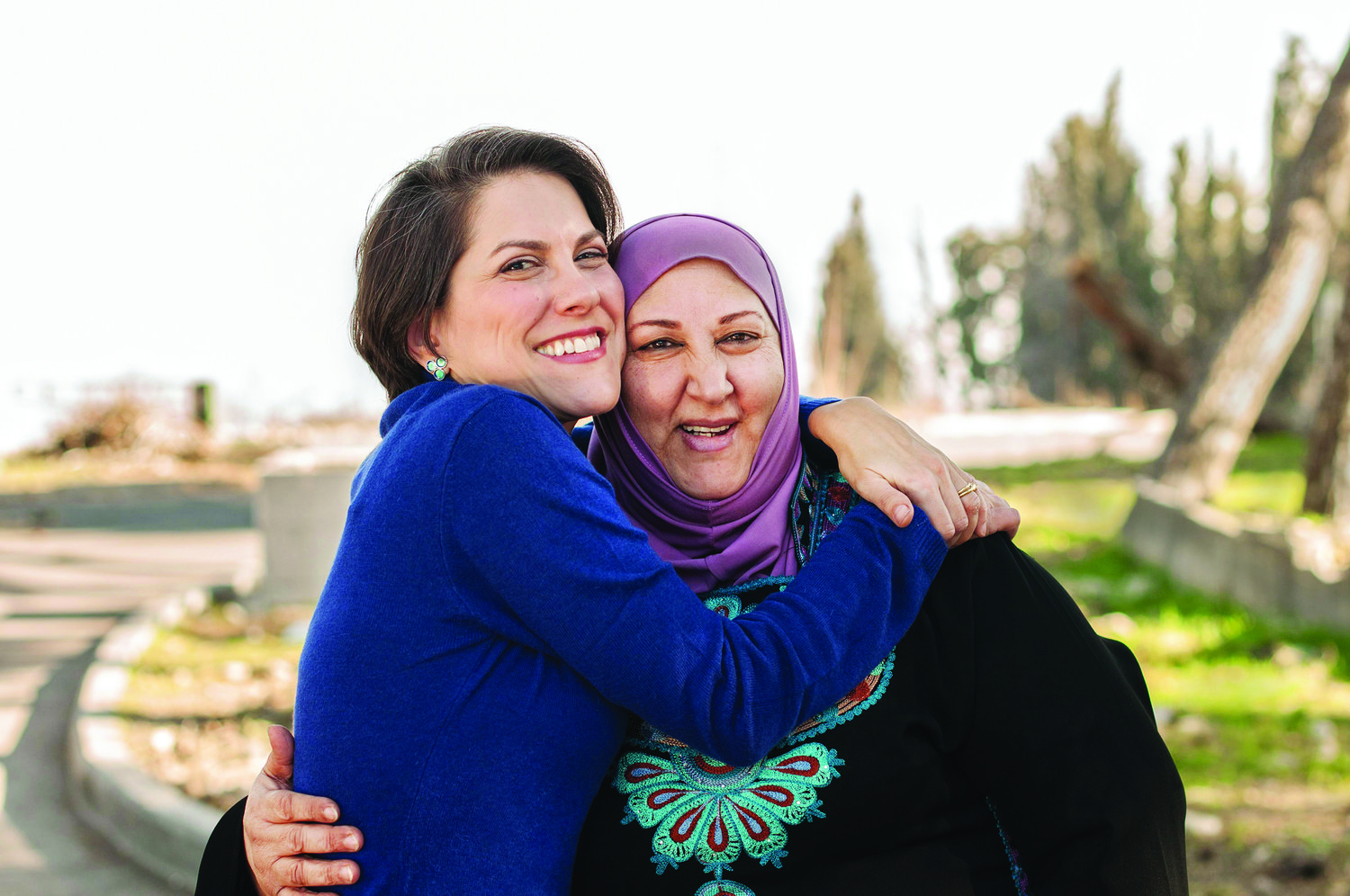All the things we have in common
At Bar Ilan University, I learned a conflict resolution exercise that I have since used in group settings. You start by picking a divisive topic. The participants gather on different sides of the room based on their beliefs on the topic – agree, disagree or unsure. Then one member from each group forms a new group. Their task? Nope, it’s not to debate who is right and who is wrong.
The three group members, who moments ago were on separate sides of the room, are tasked with creating a list of the things they all agree on about the topic that divided them.
The last time I implemented this exercise, the group that spent most of their time figuring out what they agreed on came up with a list of over 10 things. But the group that spent all of their time arguing and debating barely came up with two things. It’s thrilling to see this classroom exercise work in the real world!
Enter Ruth Ebenstein. We met at a retreat for writers in the Negev desert. Born in California and reared in Michigan, Ebenstein made aliyah (immigrated) to Israel after completing a degree in journalism at Northwestern University. She has since worked at The Jerusalem Post and The Jerusalem Report, among others.
Ebenstein is married with three school-age boys. While nursing her youngest, she was diagnosed with breast cancer. Shortly thereafter, she began attending breast-cancer support groups. In March 2011, she joined one such group that was for both Israelis and Palestinians.
It was there that Ebenstein met Ibtisam Erekat, of Abu Dis, in the area most commonly known as the West Bank. Ibtisam, a homemaker, had three kids of her own, two boys and a girl. While Ebenstein was an observant American Israeli Jew, Erekat was an observant Palestinian Arab Muslim. However, as in the exercise, it was not these differences that Ebenstein and Erekat chose to focus on.
They noticed that many aspects of their lifestyles were similar.Both were observant members of their religions. Both got married late in life. Both married divorced fathers and became stepmothers. Both were diagnosed with cancer while nursing. And they had similar personalities, which became apparent through their senses of humor, their warmth, and, above all, their curiosity about other people.
Their friendship blossomed, but it took time and effort to make it work. Following each session of the support group, Erekat would depart on a chartered minivan that took her back to Abu Dis. At the time, Ebenstein wasn’t sure how safe it was to visit Erekat in that village.
Then the two were selected to be part of an Israeli-Palestinian delegation to Bosnia to meet with other breast-cancer survivors. Finally, they had a chance to truly bond and solidify their friendship. They were together at the conference like two girls attending the same summer camp.
Since then, their lives have become intertwined. Each has gone to the other’s home simply to spend time together. Ebenstein traveled to Abu Dis to pay her respects when Erekat’s mother died. Erekat attended Ebenstein’s family’s celebratory events. They shared the good times, and the bad, all the while respecting each other’s religious dietary restrictions.
They don’t consider themselves friends, but rather sisters.Together they shared their stories and the powerful message that “The Real Enemy is Cancer.” It is something that no wall can prevent and no bullet can kill, no matter your religion, race or nationality. Ironically, it is this disease that knows no borders that helped two women cross their own borders.
The world is a lot more complicated than the friendship between two people. One rule I followed when interviewing Ebenstein (I also spoke with Erekat briefly by phone) was to avoid talking about politics. Because that is not the point of this article.
Perhaps focusing on what we have in common and respecting our differences is a starting point for building something that goes beyond politics, differences and conflict. While not a solution, it is a beginning nonetheless – two people focusing on common interests is the equivalent of people from opposite sides of a room coming together to discover all the things they have in common.
DANIEL STIEGLITZ (dstieglitz@gmail.com) lives in Jerusalem, where he works as a Life Coach. His collection of short stories, “Tavern of the Mind,” is available for paperback and Kindle purchase on Amazon at www.amzn.to/2Izssrz.








